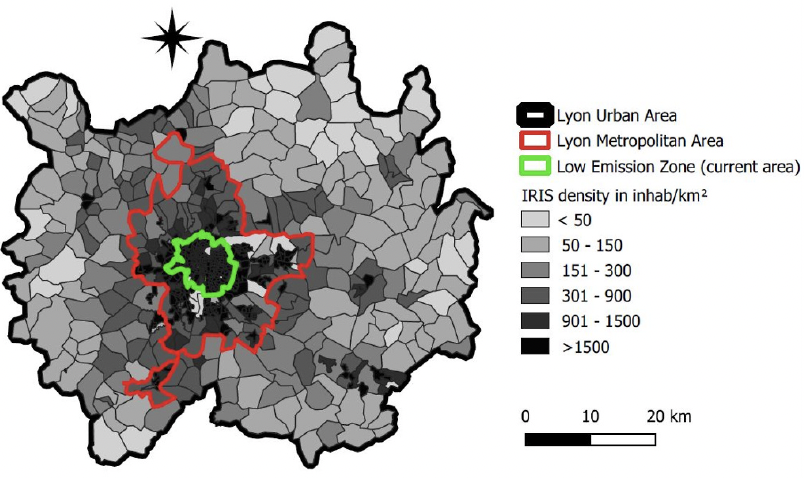A new paper aims to quantify the environmental and economic impacts of a low-emission zone in the context of urban freight transport. The research combines a literature review, behavioral data, urban freight transport, environmental models, and cost-benefit analysis methodologies. Through this methodological framework, the researchers examine the costs and benefits of implementing a low-emission zone using different scenarios with varying perimeters and environmental requirements in the urban area of Lyon.
The findings of this study suggest that increasing the size of the perimeter is more economically and environmentally efficient than tightening the level of environmental standards.

This paper proposes, through an innovative methodology, an ex-ante evaluation of the environmental and economic impacts of a LEZ for freight vehicles in the city of Lyon. To do so, we develop a methodological framework composed of three steps: simulation of transport demand, supply, and organization, environmental and economic impacts calculation, and computation of the economic-environmental balance through a cost-benefit analysis over five years.
Also, check out: Zero-emission zones or zero-emission budget? What could work?
